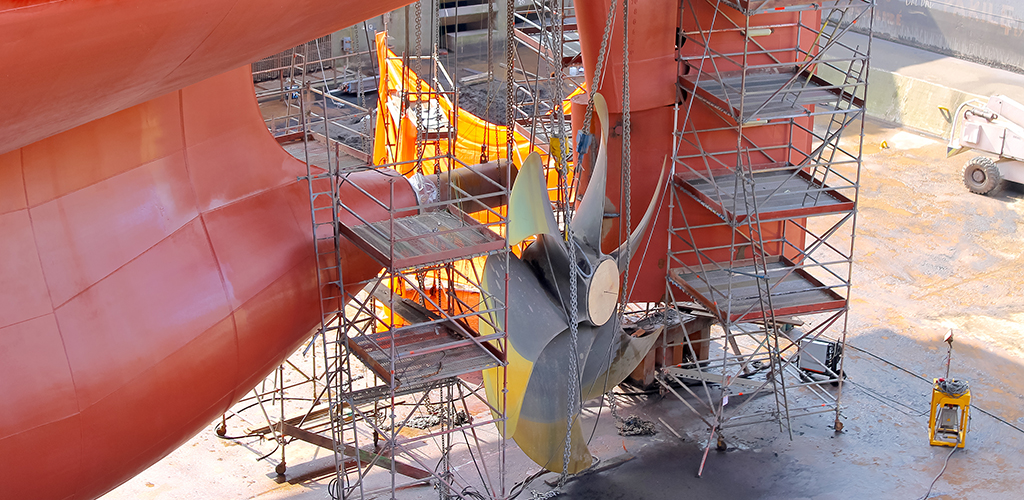Aug 10 | 2020
Communications broke down on a mining project between the EPC’s logistics department and the freight forwarder

By John Amos
Capital project contracts contain clauses with wording on penalties for delays and bonuses for early completion of the project. Millions of dollars are at stake resulting in EPC management having a high- level focus on timely delivery of construction material. Vital to this effort is continual communication between the EPC, its freight forwarder, major subcontractors, and the client. As capital projects often have changes in scope during construction, it is imperative that all involved in the project be aware of the changes so they can react and adjust the project schedule. The following is an example where communications broke down on a project between the EPC’s logistics department and the freight forwarder.
Construction material for a mining project in Montana was sourced in Europe to be shipped on a chartered vessel to Houston and then on specialized trucks to the jobsite in Montana. The long transit time needed to be monitored constantly to ensure timely arrival at the jobsite. Communication first broke down after the vessel departed the port in the Mediterranean. It was the vessel’s maiden voyage and three days out it lost its screw and had to be towed back to port for repairs.
Unfortunately, the freight forwarder did not notify the project’s logistics manager that it would take at least three weeks for repairs and resume the voyage and second, the logistics department failed to notify project management.
Needless to say, the client, project management and jobsite management were very upset as the construction schedule was set for the estimated date of delivery to the jobsite. The delay affected craft worker scheduling, crane and other equipment assignment (often under rental agreement) and adjustments to placement of other material scheduled to arrive around the same time. It also affected the contract with the specialized trucker who had to adjust the availability of his equipment and crew.
The construction material was discharged at Port Houston and secured on several multi-axle trailers for permitted movement to the jobsite in Montana. Many permits were required from various highway agencies in Texas, New Mexico, Colorado, Wyoming and Montana. A logistics department employee was assigned to ride with the trucks and report daily progress.
 The movement was uneventful until a major road accident occurred in Montana while crossing a narrow two-lane bridge over a small river. The trucks’ permit specified they cross the bridge single file with no opposing traffic. Unfortunately, a truck coming from the opposite direction tried to beat the permitted trucks across the bridge and struck the first truck killing its driver and damaging the bridge to the point it could not be used. The project material was not damaged but had to be rerouted across a bridge 50 miles distant that was rated for handling the overweight trucks. The police investigation resulted in preventing the loads from moving for three days.
The movement was uneventful until a major road accident occurred in Montana while crossing a narrow two-lane bridge over a small river. The trucks’ permit specified they cross the bridge single file with no opposing traffic. Unfortunately, a truck coming from the opposite direction tried to beat the permitted trucks across the bridge and struck the first truck killing its driver and damaging the bridge to the point it could not be used. The project material was not damaged but had to be rerouted across a bridge 50 miles distant that was rated for handling the overweight trucks. The police investigation resulted in preventing the loads from moving for three days.In this instance the jobsite was immediately notified, but there was a further delay as the Montana Highway Patrol would not allow the trucks to proceed until they completed an investigation of the accident. That took three days. Luckily, all of the material arrived at the jobsite with no damage, but there were several claims that took months to settle plus negotiations over the master contract project delay clauses.
The lesson learned from this highly unusual string of events is that project communications must exist at all levels and include every department involved. The communications actions to be taken by each entity must be included and a final report produced for the files in case a claim is filed at a later date.
More from Breakbulk Veteran John Amos:
Near Calamity on the Way to Alberta Oil Sands Project
https://www.breakbulk.com/Articles/near-calamity-on-the-way-to-alberta-oil-sands
Iraq: Long-term Planning Vital for Critical Operations Involving Employees, Families Under Dangerous Conditions
https://breakbulk.com/Articles/amos-early-planning-helps-in-navigating-disas
Project Crisis in Papua New Guinea Jungles
https://www.breakbulk.com/Articles/project-crisis-in-papua-new-guinea-jungles
Extreme Logistics: Kuwait Oilfield Fires
https://middleeast.breakbulk.com/Articles/extreme-logistics-kuwait-oilfield-fires
About the author
 John Amos is an international logistics and transportation consultant specializing in issues related to planning, operations and regulatory issues. His experience encompasses the fields of ocean, air and surface transportation. For more than 45 years he has had international and North American positions in the fields of logistics, procurement and construction management.
John Amos is an international logistics and transportation consultant specializing in issues related to planning, operations and regulatory issues. His experience encompasses the fields of ocean, air and surface transportation. For more than 45 years he has had international and North American positions in the fields of logistics, procurement and construction management. You can reach John Amos by email at [email protected].
Subscribe to BreakbulkONE and receive more industry stories and updates around impact of COVID-19.
